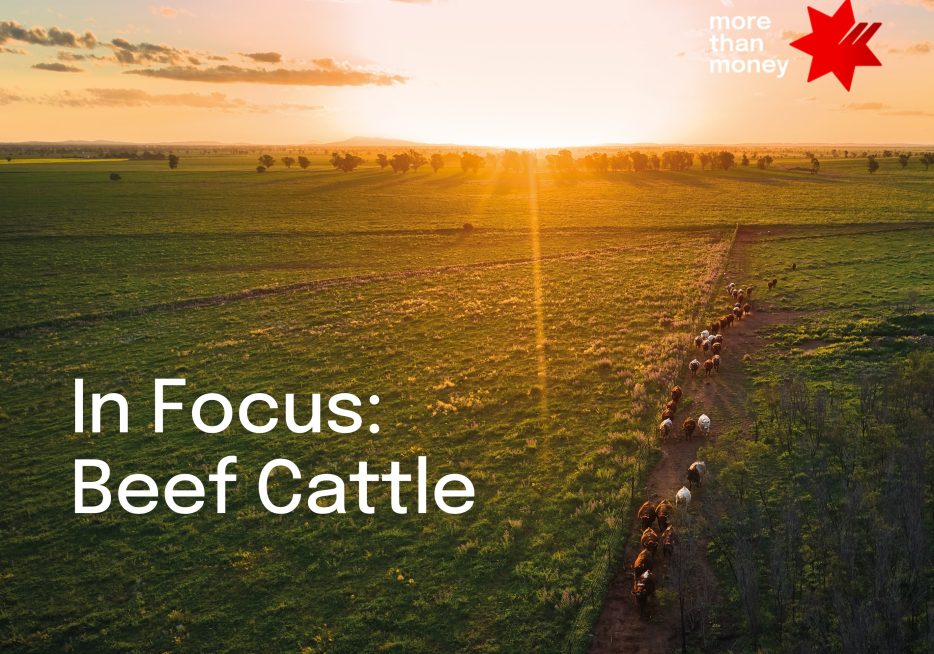Download NAB's latest In Focus Report - Beef Cattle

Report
There are strong opportunities for Australian agribusinesses as key Asian markets are increasingly demanding high quality, safe and healthy food.

Australia’s clean-green image and safety record with better-for-you products puts agribusinesses in the perfect position to cater for Asia’s evolving food demand. Agribusiness View looks at the benefits to the Australian agricultural industry.
There are strong opportunities for Australian agribusinesses as key Asian markets are increasingly demanding high quality, safe and healthy food.
This was one of the headline insights from the Economist Intelligence Unit’s (EIU) recent report, A Healthy Future for All? Improving food quality for Asia, which was sponsored by NAB.
While previous forecasts have focused on population growth and export quantity, General Manager of NAB Agribusiness Khan Horne says the EIU report showed Australian agribusinesses need to look beyond simply volume and respond to the evolving market. “The increasing demand for safe and reliable food in Asia is creating further opportunities for the Australian agriculture sector,” Mr Horne said.
“A growing consumer interest in health and wellness is being reflected in increased demand for better-for-you products. Australia’s clean-green image and safety record mean our reputation in this space is very strong.
“This is more good news for Australian producers who are looking at ways of supplying both base commodities and value-added products to Asia.”
The report also notes larger food companies in China are increasingly looking abroad to meet future demand for safe, high quality food. This saw outbound mergers and acquisitions activity in the food and beverage sector increase 117 percent last year.
NAB has found local companies are also increasingly teaming up with reputable foreign players to address quality control and brand credibility to meet this demand.
A recent NAB Agribusiness survey of more than 5,000 agribusinesses Australia-wide found 21 percent have international dealings. The majority of these businesses (64 percent) have dealings with Asia.
The fishing and aquaculture sector is most engaged, with 37 percent of businesses dealing with Asian markets. This is followed by horticulture at 25 percent, cropping at 11 percent and livestock at 10 percent.
Over the next five years, the proportion of agribusinesses with dealings in Asia is expected to jump from 13 to 18 percent.
“This is an exciting time for Australian producers and agribusiness. Listening and responding to market signals, particularly around the growing demand for high quality produce, is vital to ensure we make the most of opportunities,” Mr Horne said.
“To support Australian agribusinesses looking to take advantage of the evolving market, we’ve appointed Roger Gaudion in the newly created role of Head of Agribusiness, Asia Desk.
“Roger will be assisting our agribusiness customers to source opportunities in Asia as well as facilitating investment in Australian agribusinesses.”
© National Australia Bank Limited. ABN 12 004 044 937 AFSL and Australian Credit Licence 230686.